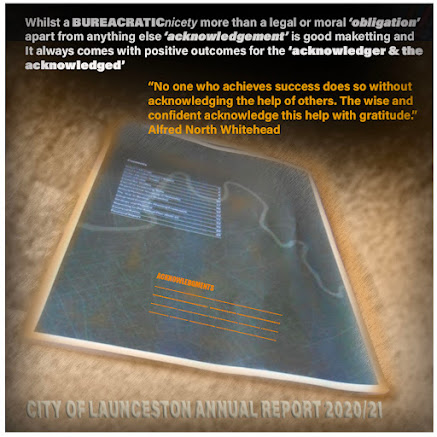Generally, in 'public institutions' acknowledgement is a contentious issue and at it is often said because it all too often goes to issues to do with 'accountability'. In Australia – indeed Tasmania and Launceston – 'acknowledgement of First Nations people' and 'country' only came about after a rather long and protracted debates at multiple levels – it almost always was angst laden 'debate' and very, very rarely 'deliberation'.
Similarly, in Australia the moral Rights Of The Author have been hard won. For instance, newspapers must deal with the issue in multiple ways each and every time they publish. While newspapers once argued that they operated under a distinct set of 'standards' that enabled them to edit contributions to their publications – most interestingly letters to editors.
Editing the word 'not' out of statement fundamentally changes 'meaning' – always with political and/or other implications. Likewise, there are a range of implications in non-acknowledgment. In 'governance' community representatives have an obligation to ensure that people, their work, their status and contributions are acknowledged and where appropriate 'honoured'.
As a means of comparison, 'the MOVIEworld' for the most part knows everything about and does everything to do with 'acknowledgement'.
As David Morrison tells us “The standard you walk past is the standard you accept” !









